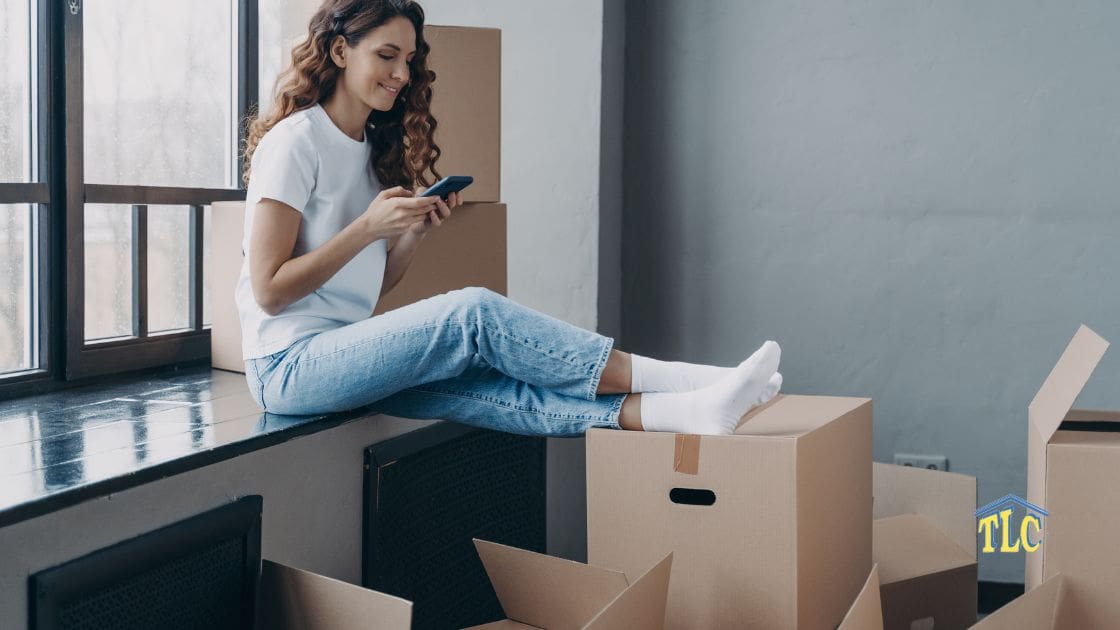It’s no secret that moving houses and packing up all your furniture and belongings can be one of the most stressful times in a person’s life.
And while hiring professional movers is one way to help alleviate some of the burdens, renting storage space to store contents of your home can further help to lighten your load and spread out your move instead of moving everything in just one day.
Here are some of the many advantages of using storage when moving houses along with some tips for renting a storage space.
Advantages of Renting Storage for Moving
Items Are Readily Available Before and After Moving
You can start storing things you don’t regularly use well before your moving date to help alleviate the stress of moving everything in one day. And if you need to access these items at any point throughout the moving process, or after your move, they are readily available at your storage unit.
Safety and Reliability
Look for reliable moving storage companies to store your belongings. Storage units are safe and secure with a security system in place to help protect your belongings.
You can also rent storage units for an unlimited amount of time, so if you need to take a few more months (or years) to move everything out of storage, you can.
Getting Rid of Excess Clutter Makes Your Home More Appealing to Potential Buyers
If you are selling your home, moving excess clutter into storage will only help you sell.
Removing clutter makes homes look and feel more spacious. And buyers want homes that have enough space to house their belongings while still allowing for room to grow.
More Space in Your New Home When You Move In
Instead of being overwhelmed by piles of boxes to unpack, you will have more space in your new home to settle in and make it your own without the added clutter.
This extra space will also make home renovation projects easier. For example, if you want to clean the carpets or redo the flooring when you move in, you’ll have less furniture and items to move around.
Give Yourself More Time to Move In
Storing your belongings allows you to move at your own pace instead of rushing to move everything in one day.
You can break your move up into stages and start moving things into storage as early on as you want. So come moving day, there will be much less stress to move everything.
When Move-Out Day and Move-In Date Don’t Line Up
Sometimes moving dates don’t line up. A buyer/new tenant could take possession of your old home before you get possession of your new home. Or, maybe by the time your home sells, you still haven’t found a new place to live.
If this happens, you’ll need to find temporary accommodations—and they will likely not be able to accommodate the contents of your home. But a storage unit can keep all of your belongings safe during this transition period when you’re between houses.
Less Stress When Any Unexpected Issues Arise on Moving Day
On moving day, anything can happen that can interrupt your move. But having a storage backup plan on moving day can help ease your stress, allowing you to move your items to a safe spot until you can move into your new home.
Helpful for Cross-Country/Overseas Moves
If you’re planning for a long-distance move, either across Canada or to another country altogether, you may not want to bring all of your belongings right away. Maybe you’ll be renting a temporary home until you can find more permanent housing. Or maybe the move itself is temporary and there is no need to go through the hassle of moving all your belongings such a far distance.
Tips for Renting Storage Space
Determine What Size You Need
Storage units come in various sizes, ranging from small (e.g. 5-by-5 feet) for storing small items, small boxes, and books, or medium (10-by-10 feet), for storing most of a one-bedroom apartment, to large (10-by-20 feet) for storing the contents of a three-or four-bedroom house.
Consult with the storage company to get an idea of the size you’ll need for your belongings based on the size of your home and what you plan to store.
Consider Climate Control
Humidity and temperature changes can damage your belongings, warp furniture, and mildew upholstery. Cold temperatures are also damaging for electronics.
So if you plan to store anything that has sentimental value (or monetary value), consider a climate-controlled storage unit to help protect your belongings from damage. Climate-controlled units are the best storage containers for moving, especially in winter or summer.
Plan Ahead – Reserve Storage Space Early
As soon as you know for sure that you are moving, reserve a storage space. It’s never too early to start packing and moving things into storage. And the earlier you start preparing for moving day, the easier the big day will be.
Take Inventory of What You Plan to Store
This will help you determine if there is enough space in your storage unit for all your items. Taking inventory will also help you keep track of everything you do end up storing.
Know What to Store and What Not to Store
Store anything you can live without for the time being. But make sure you know what is appropriate to store in storage units, along with things you shouldn’t keep in storage.
Some examples of things you should not keep in storage include:
[su_list icon=”icon: dropbox” icon_color=”#0055A5″]
- Plants
- Hazardous materials
- Perishables
- Scented items
- Medical supplies
- Firearms and ammunition
[/su_list]
Obtain the Proper Insurance
Ask storage companies about insurance. And see if your homeowner’s or renter’s insurance covers off-premises property protection for theft and damage. Getting the right coverage for your belongings while in storage will help ease your mind during the move.
If you want to help ease the stress of moving, consider renting a storage unit and contact your local moving and storage company well in advance of your moving day.







